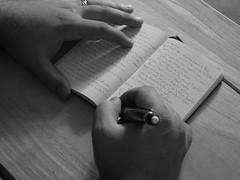
I know every teenager has used the expression "Nothing" when asked what they are doing, at least once.
Doing nothing is actually incredible. It is the most simple way to relax. Sure, doing nothing can waste time, but it doesn't have to. It's an art. Actually, doing nothing helps you be more productive.
Baby Steps
First, focus on 5 minutes. Preferably every day, maybe a couple times a day. Practice in a safe place: a bedroom, a man-cave, or even a living room. Cut out all distractions. Turn off the radio, your phone, an mp3 player, everything. And do NOT turn that television on! It helps me to be laying down, or sitting reclined. Close your eyes, and do nothing.
Breathe
Don't forget this! Breathing is the best place to start when doing nothing. Breathe slowly, and feel your breath. In through the nose, out through the nose. Notice your lungs filling and emptying. Feel the breath in your body. Don't think about anything. Just breathing. Just relaxing. Just nothing.
Work up to 20 minutes, or even half an hour. Doing nothing every day helps clear your mind, and frees your attention. If you need to schedule your do nothing time, then by all means do so. Doing nothing gives you more time to focus on the task at hand.
You will become relaxed, and ready to let the day flow with ease.


